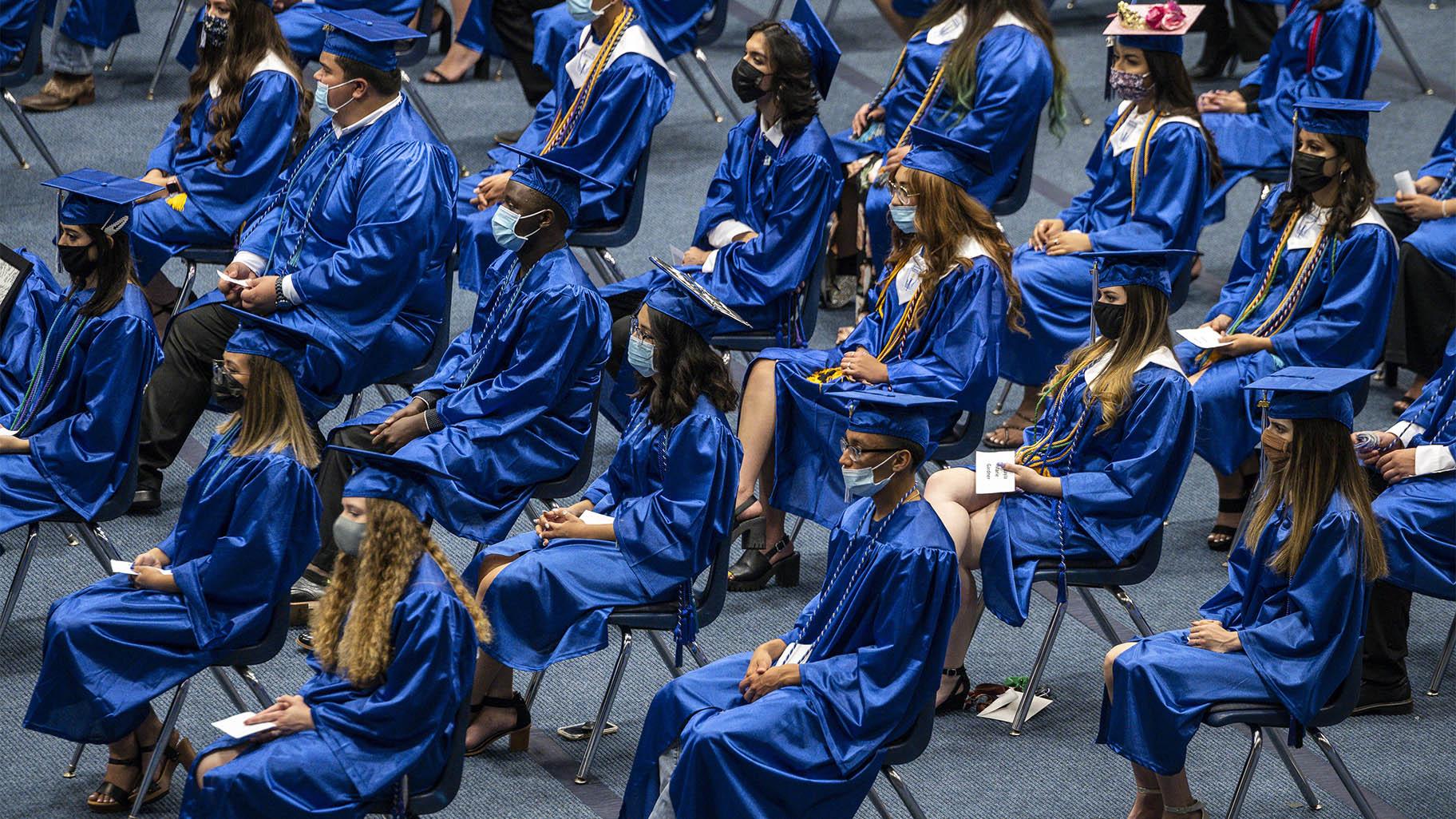College Track: Preparing students to succeed in college and beyond
College Track: Preparing students to succeed in college and beyond
We believe that higher education is the springboard for realizing an individual’s potential. In order to succeed in college, students must be prepared psychologically as well as academically. For low-income students, the barriers to high school completion and college graduation often seem insurmountable. They face academic and financial challenges, as well as peer and family pressure. For students who make it to high school graduation, the likelihood of getting into college, much less persisting and succeeding there, can seem painfully dim.
College Track has developed a proven model to empower students to overcome these obstacles and re-write their future. The organization serves low-income students committed to earning a four-year college degree; they are often the first in their family to apply to and attend college. College Track makes a 10-year investment in each student: building academic skills, providing financial support, and bolstering social-emotional wellness. And the results speak for themselves: students in the program graduate from college at a rate more than twice the national average for low-income students.
College Track opened its first site in East Palo Alto in 1997. Twenty years later, College Track is working with almost 2,500 students across nine centers in California, Colorado, and Louisiana.
College Track Bay Area
Academic Year 2016–2017
Bay Area Sites:
East Palo Alto, Oakland,
San Francisco
Total number of students in the program
1,353
Students in college
562
Program participants
students of color
99.85%
From low-income families
77%
First generation to attend college
86%
Fostering a college-going mindset
Students from low-income families rarely receive the same opportunities and encouragement about preparing for college as their more middle-class peers. For many of them, the norm—at home and at school—is that they will not pursue higher education. Most low-income-area high schools lack the resources to counsel students on how to apply, persist, and succeed in college.
Every week, College Track students spend two or three days after school at their local site, engaged in a variety of learning activities: one-on-one tutoring, academic subject workshops, college advising, and mentoring. Volunteers from the community—serving as tutors, coaches, mentors, and “guides” for job shadowing—supplement the on-site staff. At the site, students have access to laptops and other technology tools, and sites maintain a full set of textbooks and materials from each partner high school. There are also reference books and materials that allow students to explore their creative and academic passions—and lots of encouragement.
College Track students do well at getting into college: The organization has worked with nearly 2,800 students across the country, and historically 93% of College Track’s high school seniors have been accepted to a 4-year college. College Track offers its college students peer mentoring, both in person and remotely. On-campus “cohort programs” introduce students from various high schools to each other at group get-togethers, facilitated by College Track staff. This nurtures a network of peer support based on shared experiences.
Partnering for student success
With high schools: College Track partners with target high schools in the cities where the organization has established a site, and students apply to the program the summer before starting ninth grade. College Track programming works on three fronts simultaneously: academic skills, college and financial supports, and social-emotional wellness.
With parents: In a sense, each College Track student and his or her family enter into a partnership with the organization. College Track sees parental involvement as key to a student’s success, and the organization works to engage parents as partners. Most College Track students are the first in their families to attend college, and many of the parents do not feel they’re able to provide the academic assistance and emotional support their children need. College Track offers parents various forms of engagement so they can play an active part in their children’s journey to college.
With colleges: College Track Bay Area has a formal partnership program in place at 21 colleges and universities. Eleven of these “best fit” schools are in Northern California, where the majority of College Track’s current college students are from. The organization seeks to partner with schools that offer direct supports for College Track students, including a summer bridge program for incoming freshmen; financial supports; and sufficient support systems and a high graduation rate for low-income and/or first-generation college students. College Track’s relationships with the best-fit colleges are a key factor in the student-success equation.
College Track also arranges for campus visits and tours, to help students determine where they might want to apply. Last year, Bay Area students had the opportunity to visit numerous UC and CSU campuses, as well as other public and private schools. College Track also invites admissions counselors or other representatives from partner colleges, as well as from other local and out-of-state schools, to make in-person presentations at College Track Bay Area sites.
Helping students afford an education
College Track offers students financial assistance based on merit as well as need. The organization also helps students to complete their state and federal financial aid applications, and to seek private scholarships from their prospective colleges.
College Track’s Bank Book Program gives high school students a way to accumulate scholarship funding every semester, in acknowledgment of academic performance and community service. Students earn by: achieving 90% attendance at College Track workshops; earning a 3.0 or higher GPA; raising their GPA by 0.5 point; and, performing community service. Of the 562 College Track Bay Area students in college during the 2016–17 academic year, almost all had earned funds through the Bank Book Program. College Track also offers needs-based scholarships as well as emergency funding grants.
Building an alumni community
For high school students currently in the program, witnessing the successes of College Track alumni is a key motivator. Alumni success stories are shared on-site, as well as on the organization’s website and at College Track community events. Many alumni volunteer their time at Bay Area sites and some even work on staff. Each of College Track’s Bay Area sites engages with their alumni directly, by hosting reunions, mock interview sessions, and professional development workshops.
In the summer of 2017, College Track created a new management position, director of marketing and alumni strategy, and hired Itzy Gutierrez, an alumna of East Palo Alto College Track and Stanford University. She recalls, “I felt as if a huge wall separated my world in East Palo Alto from the world of Stanford a few miles away. I remember feeling fearful about living on campus, so I drove there with my father to be sure we wouldn’t get lost on move-in day. Thanks to a very generous needs-based financial aid package from Stanford, I was able to live in the dorms all four years.”
In her professional role, Gutierrez shares her story with other College Track students: growing up in foster care with her brother, her father being deported (twice), and realizing that none of her high school teachers had any idea she wanted to attend college. She finds fulfillment in sharing her experiences with College Track students. “My message is always, ‘There are so many alumni who have been in your shoes. You can do it too.’”
Gutierrez credits her success to the academic and emotional support and mentorship from her College Track community. Her College Track high school tutor and mentor continued to work with her at Stanford. Gutierrez says, “I was set up for success. I was checked on continually. And College Track’s ‘college completion’ services to our students are so much more extensive now. My success is not unusual. Thanks to College Track, so many of us have been able to discover our passions, pursue them, and share them with our families and our community.”
Through Gutierrez’s work with alumni, College Track will assess the program’s long-term impact on its graduates, on students currently in the program, and on the broader community. These findings will inform the organization’s broad strategic plan to promote alumni networking, career growth opportunities, and ways to leverage alumni within the greater College Track community.




